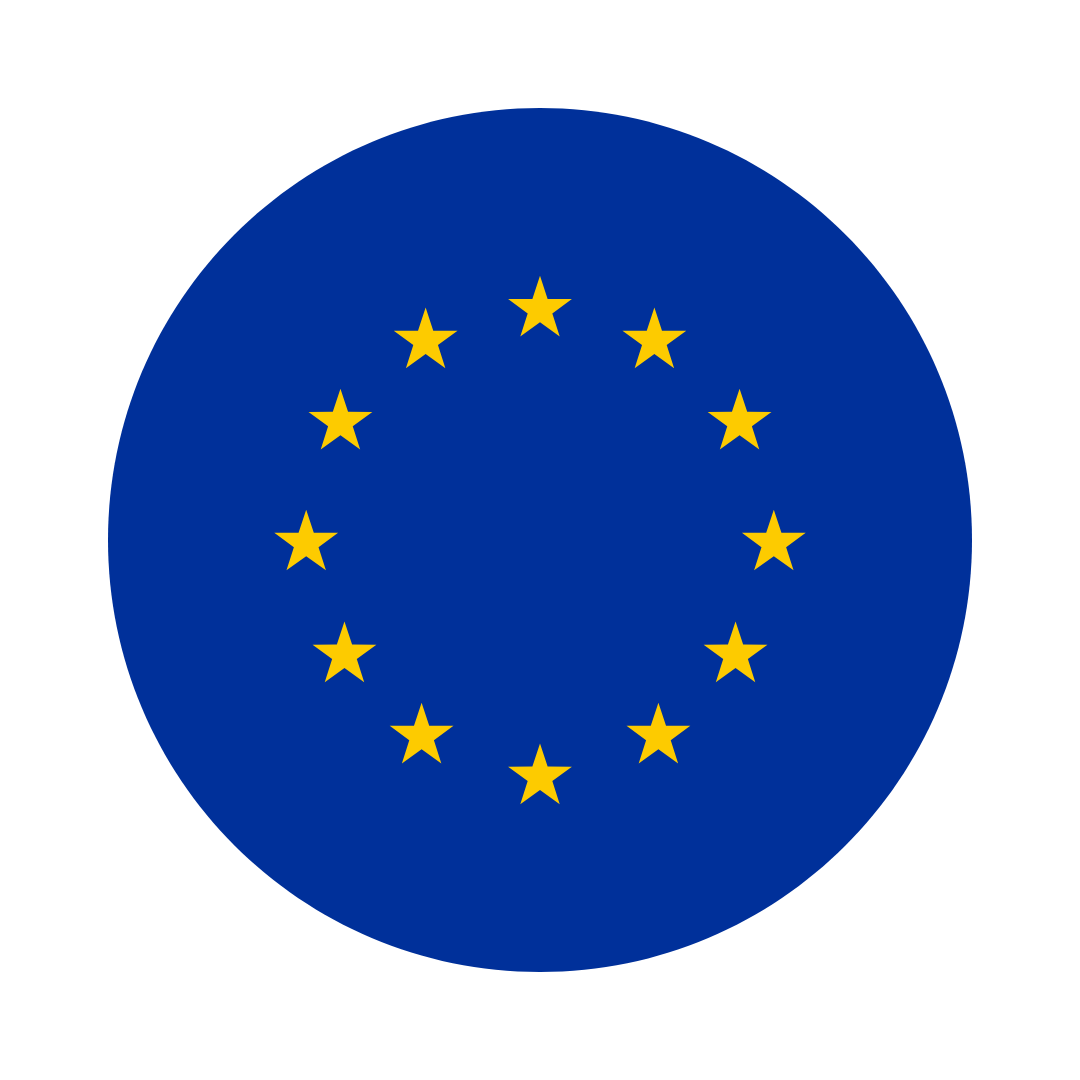
Digital Tools to Comply with the EU Corporate Sustainability Due Diligence Directive (CSDD)

Manage Human Rights Impacts with Worker Voice Technology
The European Union adopted a proposal for The Corporate Sustainability Due Diligence Directive (CSDD) — a piece of human rights due diligence legislation that will come into effect in all Member States within the next two years. The proposed directive mandates that corporations operating in the EU adopt systems to identify, prevent, monitor, and report environmental and human rights concerns in their global supply chains.
Ulula helps companies identify, prevent, remediate and report on human rights risks within global supply chains to comply with the EU Corporate Sustainability Due Diligence (CSDD) Directive.
Learn how Ulula’s technology can help your company comply with the CSDD. Fill out the form to get in touch with our team!
About the CSDD
Which companies does CSDD apply to?
Group 1: All EU limited liability companies with 500+ employees and EUR 150 million+ in net turnover worldwide.
Group 2: Other limited liability companies operating in high impact sectors, which do not meet both Group 1 thresholds, but have more than 250 employees and a net turnover of EUR 40 million worldwide.
Group 3: Non-EU companies that are active in the EU with a turnover threshold aligned with Group 1 and 2 that are generated in the EU.
What does the CSDD require?
Integrate due diligence into policies. Businesses should have descriptions of the following elements in their corporate policy: the company’s approach to due diligence; a code of conduct to be followed by the company’s employees and subsidiaries; and the processes put in place to implement due diligence.
Identify actual or potential adverse human rights and environmental impacts. Companies must take appropriate measures to identify actual or potential adverse human rights and environmental impacts in their operations, in their subsidiaries, and at the level of their established direct or indirect business relationships in their supply chain.
Prevent or mitigate impacts. Companies must take appropriate measures to prevent potential adverse impacts identified or adequately mitigate those impacts, where prevention is not possible or requires gradual implementation.
Maintain a complaints procedure. Companies are required to provide a complaints mechanism to persons who are affected by adverse impacts. This includes trade unions, civil society organizations, and other workers’ spokespeople representing individuals working in the supply chain.
Monitor the effectiveness of the due diligence policy and measures. Companies must regularly assess the performance of their due diligence measures to verify that adverse impacts are identified, preventive or corrective measures are implemented, and that adverse impacts have been prevented.
Communicate publicly on due diligence. Companies must report on the status of their HRDD compliance in an annual statement published on their website.
Why comply?
The Directive provides for a combination of sanctions, fines, and civil liability for non-compliant businesses that fall under its jurisdiction. Although some sanctions will be mandated by the Directive itself, proportional enforcement including most sanctions and fines will be at the discretion of Member States. Under civil liability, the Directive states that individuals have the right to take legal action for damages that could have been avoided with appropriate due diligence measures. It can also generate significant legal costs related to litigation around compliance with the CSDD and large reputational risks for companies.
How can digital solutions support compliance with the CSDD?
Digital tools help companies automatically gather and analyze data at scale to support monitoring and reporting across their supply chains. Ulula’s digital solutions also feature centralized platforms to manage the CSDD process, better security and privacy settings, real-time risk mitigation, and data sharing options to quickly and effectively resolve issues across the supply chain.
Ulula’s HRDD Process Achieves Compliance
Identify and Prioritize Risks
Using Ulula’s digital due diligence tools, companies can identify specific hotspots within the supply chain where actual or potential adverse human rights impacts are detected. Data is sourced directly from workers on the ground via surveys sent to their mobile phones.

Measure across 150+ indicators
Our tools are designed to track over 150 indicators, including priority risks called for in mandatory human rights due diligence (mHRDD) laws
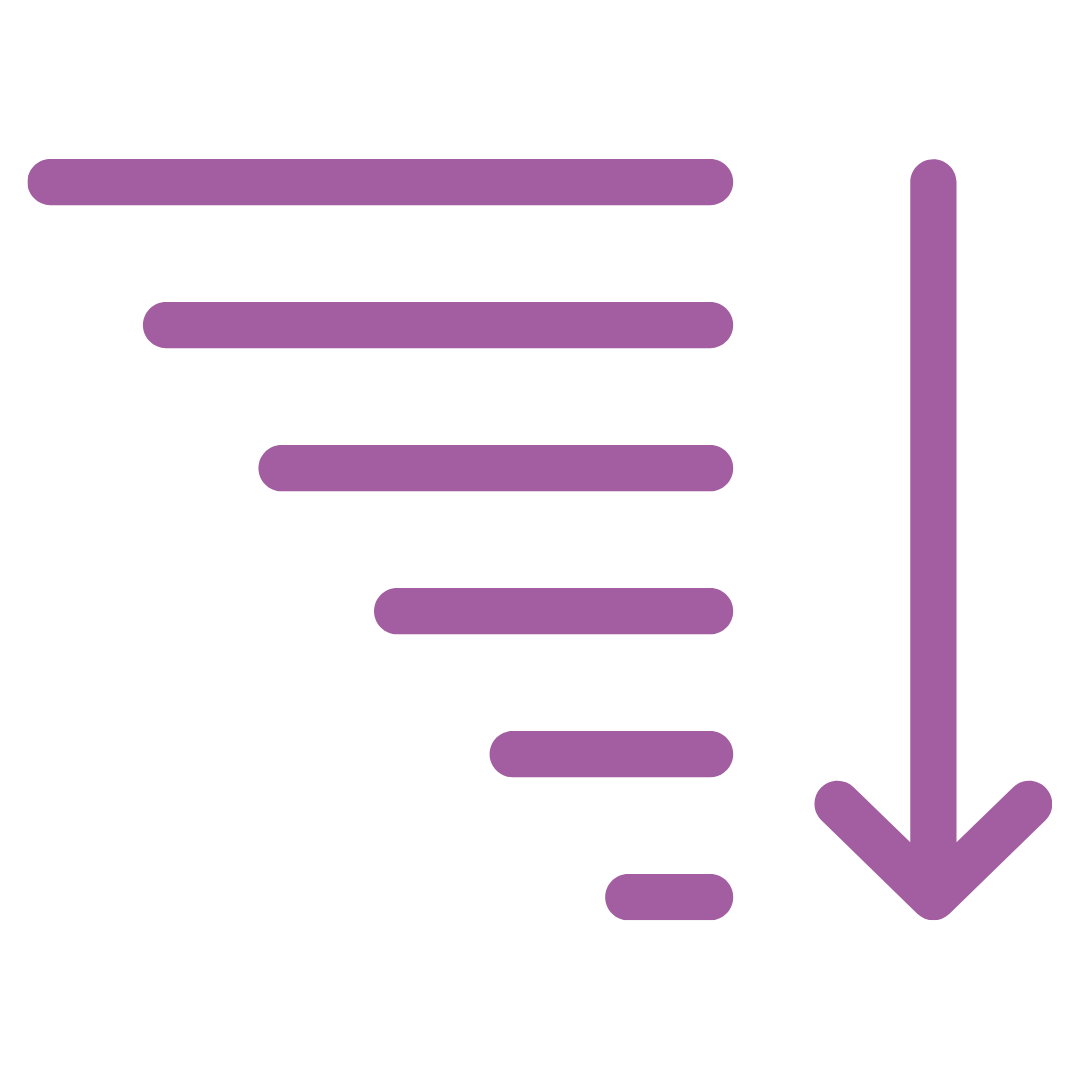
Automatic risk prioritization
Ulula’s dashboard aggregates and tags incoming risk data by issue and color codes by severity – red for high risk, green for low risk
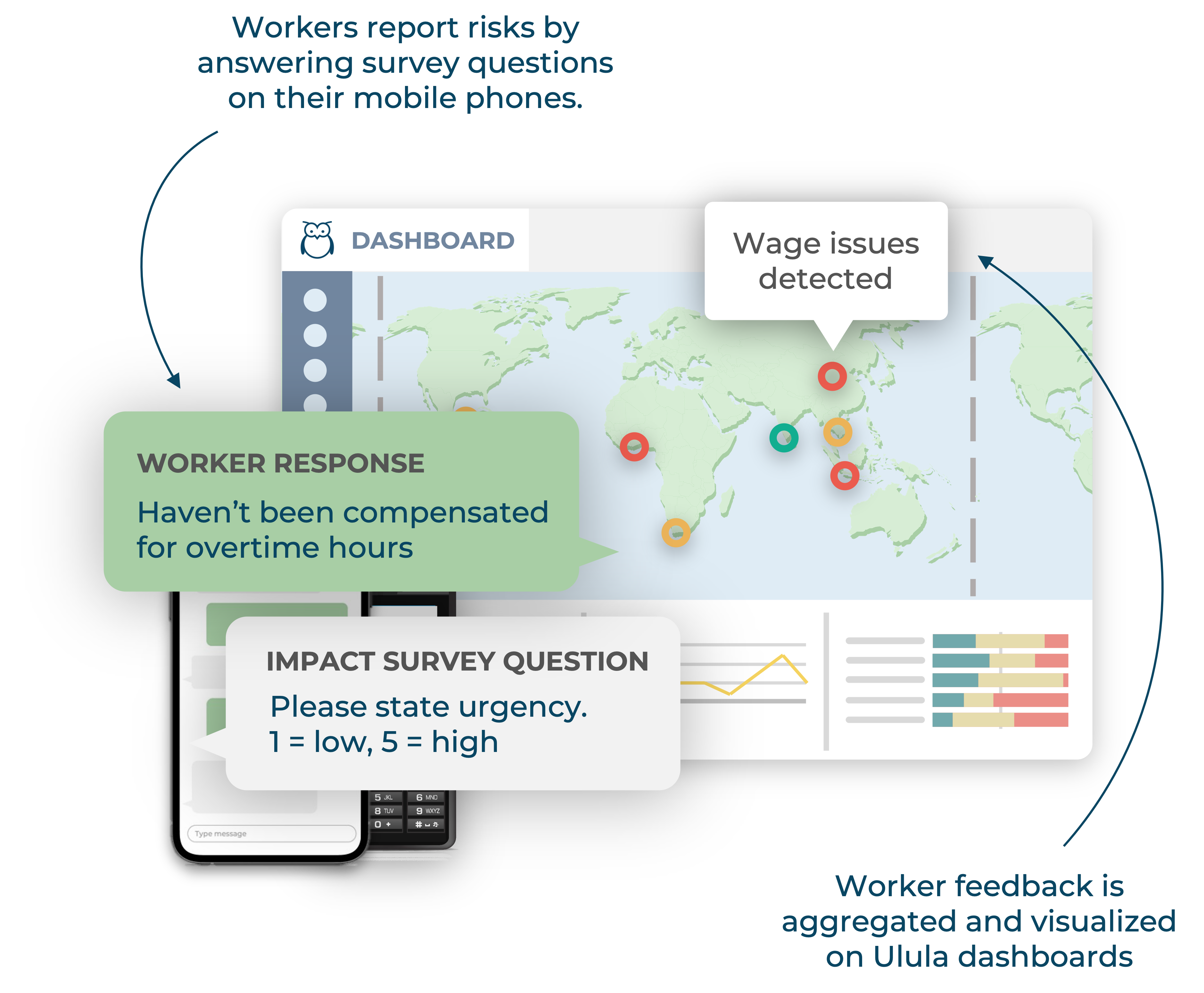
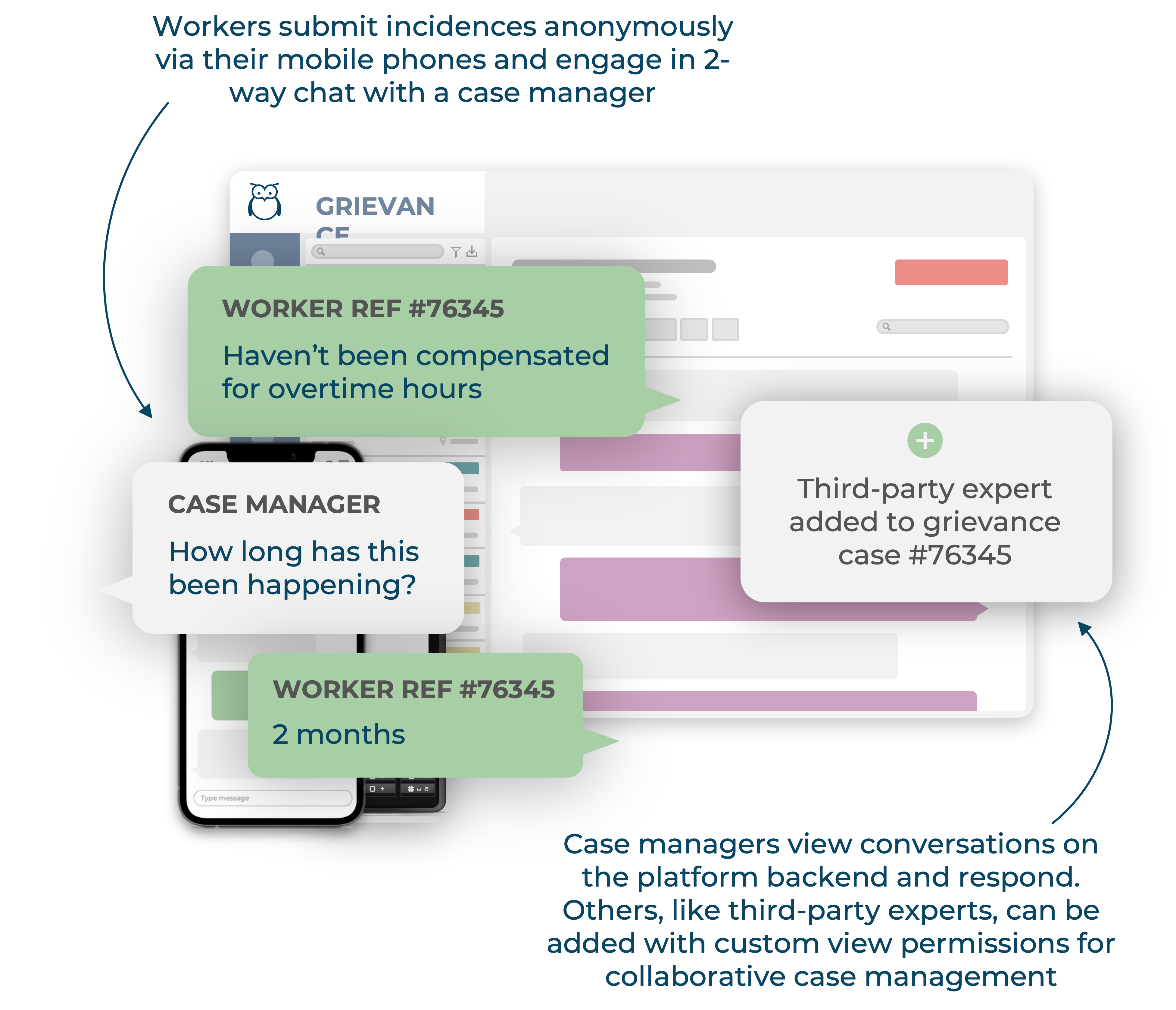
Investigate Grievances and Develop Corrective Action Plans
By implementing Ulula’s grievance mechanism and case management system, companies can provide workers in their supply chain an accessible, secure and anonymous reporting line to disclose risks directly from their mobile phones. Ulula’s platform automates grievance intake and can handle large volumes of incident reports while efficiently triaging incoming cases to ensure all reports receive follow-up and investigation by trained case handlers.

Collect grievances in any language
Ulula’s grievance mechanism auto-translates all text communication, removing language barriers between reporting issues and receiving help

Streamline follow-up and remediation
Predefined grievance protocols and access to Ulula’s network of partners helps address issues faster
Investigate Grievances and Develop Corrective Action Plans
By implementing Ulula’s grievance mechanism and case management system, companies can provide workers in their supply chain an accessible, secure and anonymous reporting line to disclose risks directly from their mobile phones. Ulula’s platform automates grievance intake and can handle large volumes of incident reports while efficiently triaging incoming cases to ensure all reports receive follow-up and investigation by trained case handlers.

Collect grievances in any language
Ulula’s grievance mechanism auto-translates all text communication, removing language barriers between reporting issues and receiving help

Streamline follow-up and remediation
Predefined grievance protocols and access to Ulula’s network of partners helps address issues faster

Report on Risks and Impacts and Track Progress
Ulula provides reports with aggregated direct worker feedback and insights summarizing detected human rights and environmental risks, demographics and trends to integrate into public corporate disclosures and share with internal and external stakeholders.

Integrate data into public disclosure
Seamlessly integrate risk data findings into mandatory public disclosures
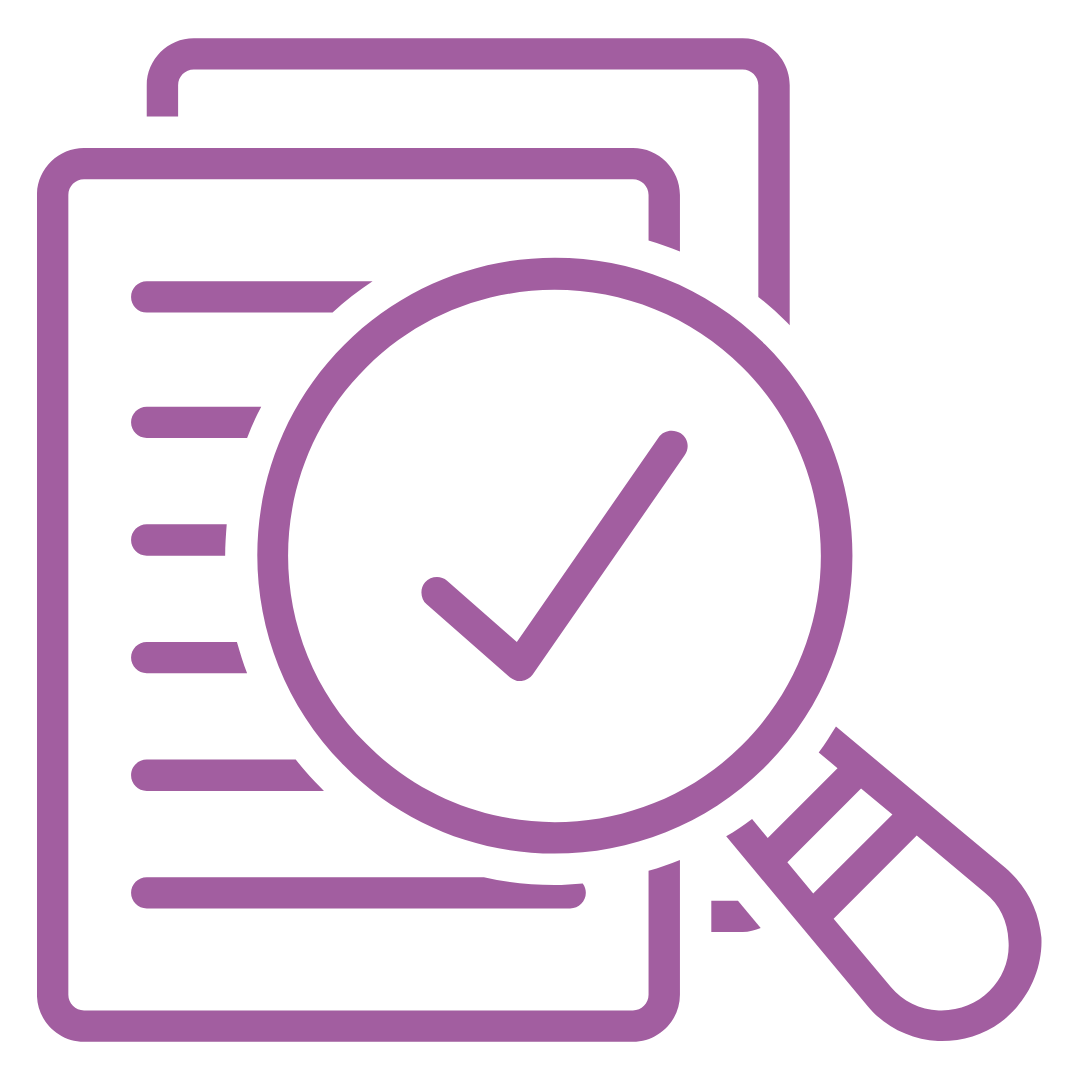
Continuously monitor and track improvements
Dashboards display results from follow-up assessments to show improvements over time

Implement Human Rights Due Diligence Today
Book a free consultation to learn how our expert team can help your company achieve effective human rights due diligence in your supply chain using innovative stakeholder engagement technology.
